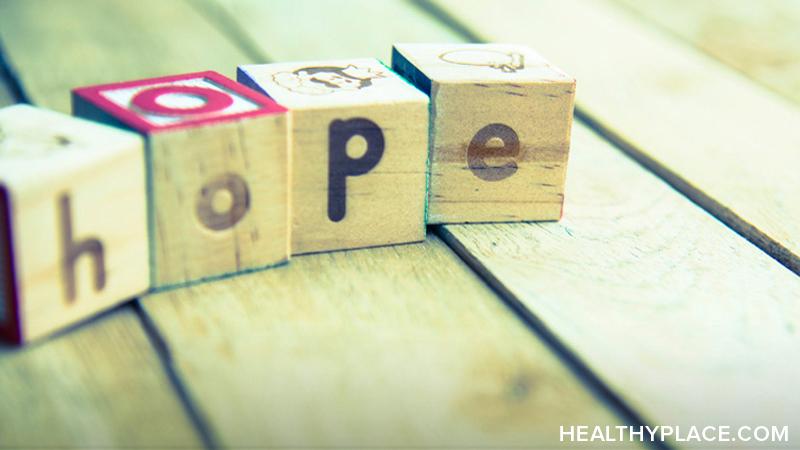Cultivating Hope Despite Anxiety

How do we cultivate hope when feeling anxious? This question has been occupying me a lot in the last few weeks because in many ways, anxiety seems to act contrary to hope. Typically when we feel anxious, we're anticipating some future event that we are worried about or afraid of. By contrast, hope is defined as a positive expectation about some future event occuring.
Based on these definitions, it does seem like we can view anxiety and hope as opposing processes -- one is focused on a future negative event, another is focused on a future positive event (or perhaps multiple events). But I believe there are ways that we can actually view anxiety and hope as similar, and that we can use those similarities to transform anxiety into hope.
Finding Similarities Between Anxiety and Hope
At first glance, hope and anxiety appear to be complete opposites. But when we think about what we're actually doing when we feel hope or anxiety, similarities between the two begin to emerge. First, both hope and anxiety are typically focused on the future. Even though one focuses on the negative and the other on the positive, the step of looking to the future is the same for both.
Additionally, both anxiety and hope can be used to change our behaviors in the present. With anxiety, we may alter how we behave because we want to avoid something in the future, whereas with hope, we might change how we behave because there is something we want to experience in the future.
Finally, both hope and anxiety force us to consider what we care about and value. Anxiety achieves this by showing us something we're concerned about happening, whereas hope does so by showing us something we are looking forward to. In both cases, we're given a glimpse into what we value.
Okay, so there are some similarities between hope and anxiety, but what can we do with them? Below, I share three tips to help shift from anxiety to hope by using the similarities between hope and anxiety as a bridge.
Transforming Anxiety into Hope
- Make a positive list for the future. Since both hope and anxiety are focused on the future, we can use this commonality to shift our focus from one to the other. Write down a list of 5-10 events or hopes you have for the future, and when you notice yourself feeling anxious, insert one of them in the place of whatever is giving you anxiety. Shifting our focus from something anxiety-producing to something that makes us feel hopeful can be a great way to re-orient our thinking and cultivate a positive attitude.
- Cultivate hopeful behaviors. The second similarity between hope and anxiety is that both can produce changes in our current behaviors, so this can be used to bring in some hopeful changes rather thaan anxious ones. Once you've selected a hope from your list in step one, identify something you can do in the present that brings you a little bit closer to that hope. Just as we started by shifting focus in the future from an anxious source to a hopeful source, we now shift our present activities from an anxious focus to a hopeful focus.
- Notice what you care about. Finally, we can build further confidence in our hopes by considering what they reveal about us as people. Are your hopes centered on professional achievement, family, friends, or a life mission? The things you write on your hopeful list can help clarify what you value, and focusing on these positive values can further disrupt an anxiety-centered perspective. Thinking about what you value can also help reinforce the hopeful behaviors you used in step two, which will make it easier to use those behaviors in the future.
Anxiety and hope feel and look very different, but the similarities they share can be used to shift our thinking from being anxiety-centric to hope-centric. What tools do you use to cultivate hope instead of anxiety? Please share below.
APA Reference
Abitante, G.
(2020, July 19). Cultivating Hope Despite Anxiety, HealthyPlace. Retrieved
on 2026, March 3 from https://www.healthyplace.com/blogs/treatinganxiety/2020/7/cultivating-hope-despite-anxiety
